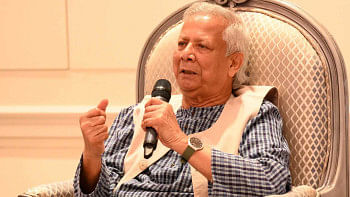Price untamed despite record rice import
Average retail price of coarse rice continues to remain high in the country despite a record high import of the staple in the current financial year (2017-18).
"A record high amount of rice imports did not contribute significantly to retail rice price reductions in the local market," stated a recently released market report of the United States Department of Agriculture (USDA).
The report -- Bangladesh: Grain and Feed Update -- quoted Bangladesh Bank estimates to note that rice is being imported at Tk 37.89 a kg from India, but retail prices in the local market are 19 percent higher than the actual cost.
Though government silos have 29 percent higher stocks (8.24 lakh MT) as of end-January comparing to the corresponding period of the last year, the USDA noted, the average retail price for coarse rice remained as high as Tk 45 per kg, 24 percent higher than the last year.
Recently Commerce Minister Tofail Ahmed has said that rice price would not drop below Tk 40.
The government is currently buying Aman rice from farmers at Tk 39 a kg and public sector rice purchase is expected to be doubled from already declared three lakh MT to six lakh MT, USDA stated.
As of February 6, in the current fiscal (2017-18), public and private sectors together imported a record 28.50 lakh MT of rice, which is 21 times more than what the country imported in the entire 2016-17 fiscal.
In the last fiscal, the government needed not to import a single grain of rice while private traders also imported just 1.33 lakh MT.
In the first seven months of current fiscal, the government imported 7.47 lakh MT with more imports in the pipeline. Around same time, private sector imported over 21 lakh MT of rice.
USDA report stated that the food ministry has a plan to import 15 lakh MT of rice in FY 2017-18 to boost public stocks, and has imported less than half the amount till end-January, 2018.
"Following the current pace of rice imports for public stocks, it will be a challenge for the government to realise its intended target," observed USDA report also noting that the government-to-government (G2G) agreement of 1.5 lakh MT rice import from Thailand has been terminated due to on-time supply failures, and the authorities have not yet decided how to fill the gap.
On the other hand, private sector rice imports have continued rapidly due to higher prices in the local market, and in order to lessen the panic of possible lower production in the next Boro season due to flood risk, the report added.
The private importers are aggressively taking the maximum benefit of a two percent tariff rate, said USDA.

 For all latest news, follow The Daily Star's Google News channel.
For all latest news, follow The Daily Star's Google News channel. 



Comments